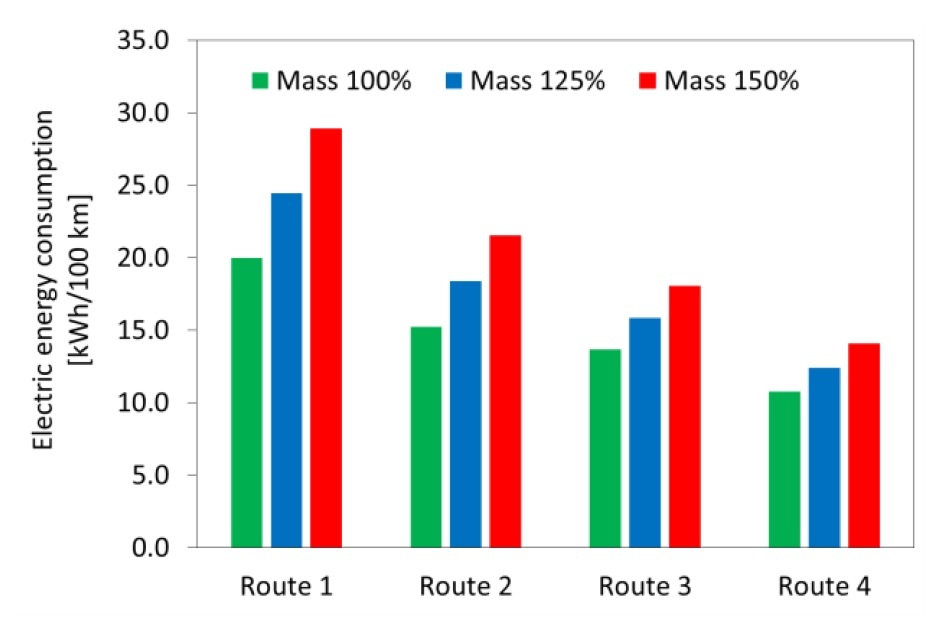Current issue
Online first
Archive
About the Journal
Aims and scope
Publisher and Editorial
Advertising policy
For Authors
Paper review procedures
Procedures protecting authentic authorship of papers
Paper preparation manual
Plagiarism check
Publication ethics
Reviewers
APC
Editorial and Scientific Board
Contact
Reviewers
Energy efficiency of a car driving with regenerative braking
1
Faculty of Mechanical Engineering, Gdańsk University of Technology, Poland
2
ul. Elbląska, Gdańsk, Poland,, BMG Goworowski Sp. z o.o., Poland
Submission date: 2025-05-16
Final revision date: 2025-06-13
Acceptance date: 2025-06-14
Online publication date: 2025-07-07
Publication date: 2025-08-28
Corresponding author
Jacek Kropiwnicki
Faculty of Mechanical Engineering, Gdańsk University of Technology, ul. Narutowicza 11/12, 80-233, Gdańsk, Poland
Faculty of Mechanical Engineering, Gdańsk University of Technology, ul. Narutowicza 11/12, 80-233, Gdańsk, Poland
Combustion Engines 2025,202(3), 20-26
KEYWORDS
TOPICS
ABSTRACT
Currently offered satellite navigation systems for cars are primarily focused on selecting the route with the shortest travel time. These systems also feature relatively simple models that allow the selection of the route with regard to minimizing fuel or electricity consumption, usually called the most ecological. Their effective use requires users to define basic vehicle data, such as drive type, maximum speed, etc. The paper presents an analysis of the impact of selected parameters characterizing vehicle properties and traffic conditions on energy consumption. The focus is mainly on parameters that can be technically used in car navigation systems to plan energy-saving routes. The analysis uses routes recorded in real traffic. The results of these analyses allowed the development of several guidelines for planning routes taking into account the EEC minimization criterion. One of the observations is that for roads with large changes in road height (over 20 m/1 km of route), a flat route with a length increased by 50%, may be more energy-efficient than the original one. This is due to the efficiency of the regenerative braking system being significantly lower than 100%.
REFERENCES (16)
1.
Andrych-Zalewska M, Chłopek Z, Merkisz J, Pielecha J. Analysis of the operation states of internal combustion engine in the Real Driving Emissions test. Archives of Transport. 2022;61(1):71-88. https://doi.org/10.5604/01.300....
2.
Artmeier A, Haselmayr J, Leucker M, Sachenbacher M. The shortest path problem revisited: optimal routing for electric vehicles. In: Dillmann R, Beyerer J, Hanebeck UD, Schultz T. (eds) KI 2010: Advances in Artificial Intelligence. KI 2010. Lect Notes Comput Sc. 2010;6359. Springer, Berlin, Heidelberg. https://doi.org/10.1007/978-3-....
3.
Chengqun Q, Wan X, Wang N, Cao S, Ji X, Wu K et al. A novel regenerative braking energy recuperation system for electric vehicles based on driving style. Energy. 2023;283:129055. https://doi.org/10.1016/j.ener....
4.
Deptuła A, Natorska M, Mamala J, Prażnowski K, Urbanowicz K. Application of a decision classifier tree to evaluate energy consumption of an electric vehicle under real traffic conditions. Advances in Science and Technology Research Journal. 2025;19(4):91-108. https://doi.org/10.12913/22998....
5.
Feng Y, Head KL, Khoshmagham S, Zamanipour M. A real-time adaptive signal control in a connected vehicle environment. Transport Res C-Emer. 2015;55:460-473. https://doi.org/10.1016/j.trc.....
6.
Fiori C, Arcidiacono V, Fontaras G, Makridis M, Mattas K, Marzano V et al. The effect of electrified mobility on the relationship between traffic conditions and energy consumption. Transport Res D-Tr E. 2019;67:275-90. https://doi.org/10.1016/j.trd.....
7.
Hunicz J, Yang L, Rybak A, Ji S, Gęca MS, Mikulski M. Comparison of diesel and hydrotreated vegetable oil as the high-reactivity fuel in reactivity-controlled compression ignition. Energ Convers Manage. 2025;323:119264. https://doi.org/10.1016/j.enco....
8.
Kropiwnicki J. A unified approach to the analysis of electric energy and fuel consumption of cars in city traffic. Energy. 2019;182:1045-1057. https://doi.org/10.1016/j.ener....
9.
Kropiwnicki J, Gawłas T. Estimation of the regenerative braking process efficiency in electric vehicles. Acta Mechanica et Automatica. 2023;17(2):303-310. https://doi.org/10.2478/ama-20....
10.
Liu W, Qi H, Liu X, Wang Y. Evaluation of regenerative braking based on single-pedal control for electric vehicles. Front Mech Eng. 2020;15:166-179. https://doi.org/10.1007/s11465....
11.
Mamala J, Śmieja M, Prażnowski K. Analysis of the total unit energy consumption of a car with a hybrid drive system in real operating conditions. Energies. 2021;14(13):3966. https://doi.org/10.3390/en1413....
12.
Montoya A, Guéret C, Mendoza JE, Villegas JG. The electric vehicle routing problem with nonlinear charging function. Transport Res B-Meth. 2017;103:87-110. https://doi.org/10.1016/j.trb.....
13.
Pielecha I, Cieślik W, Szałek A. The use of electric drive in urban driving conditions using a hydrogen powered vehicle – Toyota Mirai. Combustion Engines. 2018;172(1):51-58. https://doi.org/10.19206/CE-20....
14.
Qiu C, Wang G. New evaluation methodology of regenerative braking contribution to energy efficiency improvement of electric vehicles. Energ Convers Manage. 2016;119:389-398. https://doi.org/10.1016/j.enco....
15.
Salari AH, Mirzaeinejad H, Mahani MF. A new control algorithm of regenerative braking management for energy efficiency and safety enhancement of electric vehicles. Energ Convers Manage. 2023;276:116564. https://doi.org/10.1016/j.enco....
16.
Yang C, Sun T, Wang W, Li Y, Zhang Y, Zha M. Regenerative braking system development and perspectives for electric vehicles: an overview. Renew Sust Energ Rev. 2024;198:114389. https://doi.org/10.1016/j.rser....
Share
RELATED ARTICLE
We process personal data collected when visiting the website. The function of obtaining information about users and their behavior is carried out by voluntarily entered information in forms and saving cookies in end devices. Data, including cookies, are used to provide services, improve the user experience and to analyze the traffic in accordance with the Privacy policy. Data are also collected and processed by Google Analytics tool (more).
You can change cookies settings in your browser. Restricted use of cookies in the browser configuration may affect some functionalities of the website.
You can change cookies settings in your browser. Restricted use of cookies in the browser configuration may affect some functionalities of the website.



